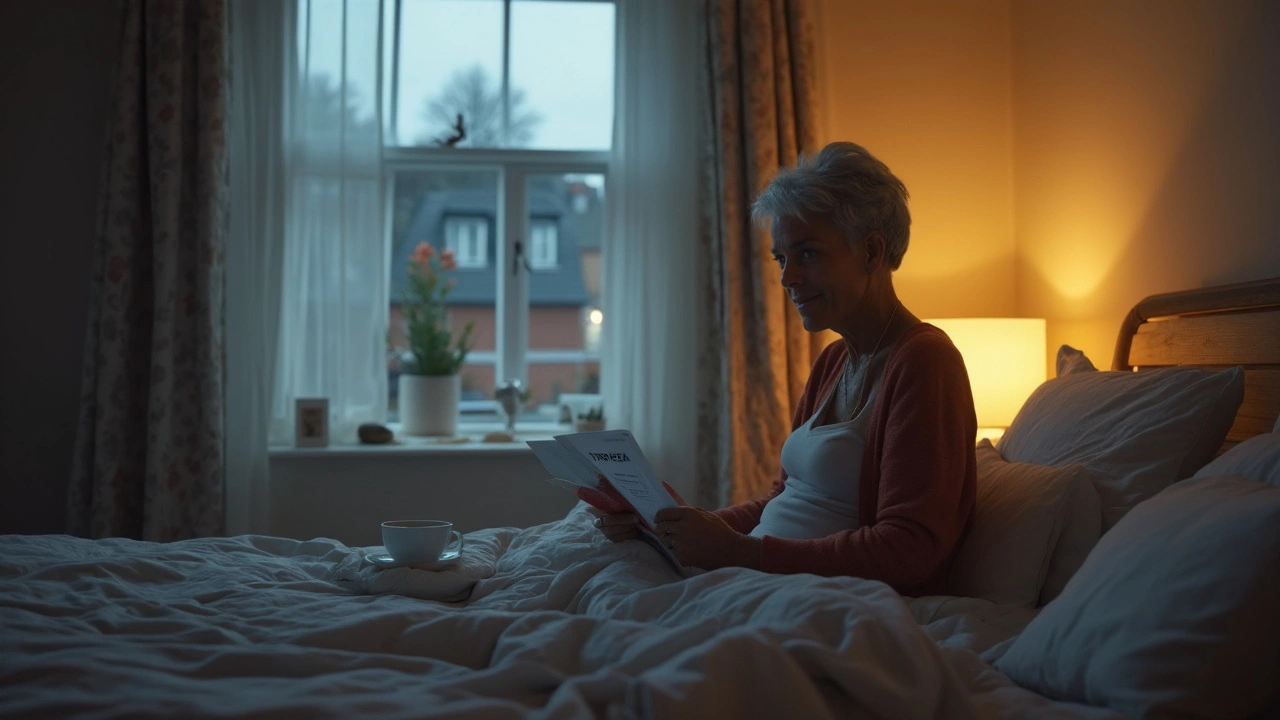Ever lie in bed, toss and turn, and feel that relentless itch crawling across your skin? You’re not alone. A dry night can turn any good sleep plan into a frustrating scramble. The good news? A few easy changes can quiet the itch and let you drift off without the endless scratching.
The first thing to check is your skin’s hydration level. If your skin feels tight or flaky, slap on a thick, fragrance‑free moisturizer right after a quick lukewarm shower. Look for ingredients like ceramides, hyaluronic acid, or petrolatum – they lock in moisture and form a protective barrier that stops the itch from flaring up overnight.
A short, cool‑water soak (5‑10 minutes) can calm inflamed nerves and lower skin temperature, which many people find soothing. Add a cup of colloidal oatmeal or a few drops of baking soda for extra relief. Pat yourself dry gently; rubbing can irritate the skin further.
Next, keep the bedroom environment friendly to your skin. A humidifier set to about 40‑50% humidity adds a bit of moisture to the air, preventing the skin from drying out while you sleep. If you can’t use a humidifier, a bowl of water nearby can help a little.
What you wear matters, too. Choose loose, breathable cotton pajamas and avoid synthetic fabrics that trap heat. Keep your nails trimmed short so if you do scratch, you won’t damage the skin and cause a secondary infection.
If the itch feels like an allergy reaction, an over‑the‑counter antihistamine such as diphenhydramine (Benadryl) can be a game‑changer. Take it about 30 minutes before bedtime, but be aware it may make you drowsy – which is exactly what you want when you’re trying to sleep.
When itching is caused by a skin condition like eczema or psoriasis, a thin layer of prescription‑strength steroid cream applied before bedtime can keep flare‑ups in check. Always follow your doctor’s directions and avoid using stronger steroids for longer than advised.
Don’t forget to check your bedding. Wash sheets in fragrance‑free detergent and avoid fabric softeners, which can leave residues that irritate sensitive skin. A fresh set of linen every week can make a noticeable difference.
Finally, manage stress. Anxiety can amplify the perception of itch, creating a vicious loop. Try a quick relaxation routine – deep breathing, a short meditation, or a calming podcast – to wind down before you hit the pillow.
Putting these steps together creates a solid night‑time itch‑relief routine. Moisturize, cool down, choose the right clothes, keep the air humid, and consider a gentle antihistamine if needed. You’ll notice fewer midnight scratches and more uninterrupted sleep. Sweet dreams, itch‑free!

Struggling with night-time itch that wrecks your sleep? This article breaks down hydroxyzine dosage for better sleep, focusing on when to take it, how to avoid grogginess, and how long you can use it safely. You'll get practical, real-world tips based on recent findings and expert insight. We cover side effects, how long hydroxyzine stays in your system, and what to watch for. If you need itch relief at night, discover how to use hydroxyzine effectively for a restful, itch-free sleep.
Read More